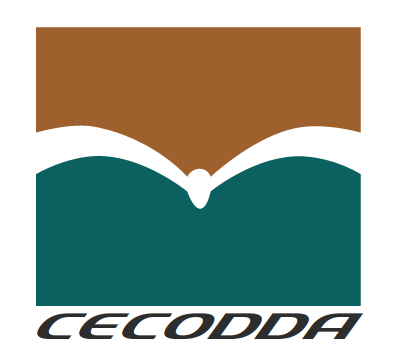STRENGTHENING THE PLANT VARIETY PROTECTION SYSTEM IN CENTRAL AND WEST AFRICA
Posted on: September 02, 2021

The African Intellectual Property Organization (OAPI) has launched the project “Strengthening and Promotion of the System of Plant Variety Protection (PPOV)”, with the financial and technical support of the European Commission, the OACP Group under the TradeCom II Programme, and the relevant international plant variety bodies. This initiative aims to strengthen the promotion of the plant variety protection system in the 17 OAPI Member States, with a view to boosting agricultural productivity, ensure food security and promote sustainable development while giving Member States' agriculture a better chance of being competitive on the local market.
The implementation of the project will stimulate agronomic research in the 17 Member States, through capacity building of research centres, human resource training and awareness-raising. It is in the framework of capacity building that OAPI organized two national seminars to raise awareness of actors in the agricultural sector in Congo and Gabon
NATIONAL WORKSHOP ON PLANT VARIETY PROTECTION IN CONGO
25-27 May 2021, Brazzaville, Congo
This meeting was addressed to local stakeholders in the agricultural sector and aimed at raising their awareness on the importance of the protection and enhancement of new plant varieties.
The work was led by experts from the partner organisations in the project, including: UPOV (International Union for the Protection of New Varieties of Plants), CPVO (Community Plant Variety Office), GEVES (Group for the Study and Control of Varieties and Seeds), NAKTUINBOUW, SEMAE.
The first day of the meeting highlighted the importance of the protection of a plant variety, for its breeder, the role of an intellectual property office in the granting of intellectual property rights, the value of establishing quality guiding principles for conducting a DHS review (distinctiveness, homogeneity, stability) of a new plant variety, and the impact of Research & Development in the public-private sector partnership.
This first stage, which ended with a very practical and demonstrative intervention by Cécile MARCHENAY of Naktuimbouw on the DHS tests applied to the examination of new varieties of tomatoes, generated lively interest and exchanges.
The exchanges on the second day raised new questions about the process of listing new varieties in national and regional species catalogues, the distinction between approval and certification, but also the process of exploiting the results of research, among others.
OAPI (Organisation africaine de la propriété intellectuelle), CNRA (Centre national de recherche agronomique, Côte d'Ivoire), SEMAE (L'interprofession des semences et plants, ancien GNIS), and AFSTA (Association africaine du commerce des semences) represented some of the different structures in presence and video conferencing.
The intervention of Omega-conseil, a local agro-export company, has made possible to foresee certain challenges in terms of collaboration between the public research sector and the private sector in order to promote the marketing in sufficient quantity of quality seeds from research centres.
The last day highlighted the important steps for the commercialization of a plant variety. Steps that range from creation to protection, through certification after multiplication in seed. This consultation promoted a round table of SWOT analysis (strengths, weaknesses, opportunities, threats) of the seed sector in the Congo. The state of the situation raised some points to work in the short and long term to bring solutions to the difficulties identified.
The three days of work concluded with suggestions from experts, including the importance of focusing the research on varieties of high ecological and economic value. The workshop also emphasized the responsibility of researchers who should work on the knowledge sharing. The administration of the Research Centres, in order to contribute to the promotion of the varieties should organize the the marketing strategy for those plant varieties. To put in place an efficient recovery strategy, CEMAC should work on aspects of harmonisation of methods and work in synergy with other economic areas such as ECOWAS.
In his closing statement, the Director General of the IRA (Institut National de la recherche Agronomique du Congo) thanked the OAPI and UPOV but also the partners, the Experts and the participants for the quality of the interventions and their support to strengthen the technical capacities of the actors of the local agricultural chain.
NATIONAL WORKSHOP ON PLANT VARIETY PROTECTION IN GABON
31 MAY - 2 JUNE 2021, LIBREVILLE, GABON
The capital of Gabon, Libreville hosted for three days, from May 31 to June 2, 2021, agricultural researchers, seed and agricultural companies, to discuss national strategies to be put in place to ensure better protection and enhancement of locally developed plant varieties to support Gabon’s agricultural development policy.
The national workshop on “Protection of New Varieties of Plants”, organized by the OAPI (African Intellectual Property Organization), was attended by international and African experts, who have shared their experiences and trained national stakeholders on examination techniques to ensure the quality of the plant variety to be developed, the value of setting up an ecosystem to exploit the variety, the interest of protection with the OAPI to ensure respect for the breeder’s right and to secure the means of marketing the variety.
At the end of this meeting, it was noted the strong will of the Gabonese State to develop the varietal sector and the quality of the researchers and breeders who work daily to advance this sector. However, it was highlighted the need for an adequate legal framework for the development and exploitation of seeds, as well as strategic and technical support for the development of quality varieties.
The meeting in Libreville followed the seminar held in Brazzaville, Congo from 25 to 27 May 2021.




